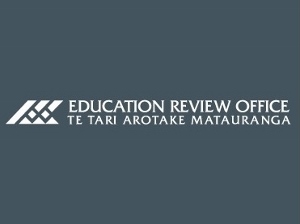

<p><img class=" alignright size-full wp-image-959" style="margin: 5px; float: right;" alt="ERO 300x224" src="http://schoolnewsnz.fastrackdev.com/wp-content/uploads/2014/07/ERO_300x224.jpg" width="300" height="224" />A new report from the Education Review Office (ERO) looks at how secondary schools analyse and use achievement data to take actions that will improve the NCEA Level 2 results of their students.</p>
<p> <!--more--> </p>
<p>The report, Raising Achievement in Secondary Schools, publishes the findings of an evaluation completed by ERO in 2013. Forty secondary schools were included in the study, representing a variety of deciles, sizes and locations from urban centres to rural towns.</p>
<p>ERO found that one-quarter of the schools in the sample were analysing their achievement information and then introducing initiatives to improve teaching and learning. These subsequently led to an improvement in their students&#8217; NCEA results.</p>
<p>ERO&#8217;s evaluation services manager Stephanie Greaney says the findings show that overall schools are getting better at looking closely at students&#8217; achievement information.</p>
<p>&#8220;We found that in the most effective schools there was a strong focus on improving their pastoral care and support for students. Support for students included better monitoring of results, academic counselling, mentoring and homework/learning support.<br />&#8220;These effective schools knew their students well and improved relationships with families and whānau,&#8221; Mrs Greaney says.</p>
<p>&#8220;We believe more could be done by all schools to identify innovative changes to their curriculum that would complement their other initiatives in pastoral care and support.&#8221;</p>
<p>One-third of schools in the sample were effective at identifying who needed support and introduced some promising initiatives. However, there was little clear evidence that these actions translated into better results for their students. Some of the initiatives were in the early stages of development so may lead to long-term increases in achievement, Ms Greaney says.</p>
<p>&#8220;We would like to see these schools more carefully monitor how well their strategies are working for their students, especially for the students at risk of underachievement. They need to develop an effective school-wide approach to investigating and responding to student achievement information.&#8221;</p>
<p>The remaining 16 schools in the study were judged to have limited effectiveness in analysing achievement data and making changes based on that.</p>
<p>&#8220;We saw a lack of urgency among some staff at these schools to improve achievement and, in some cases, limited capability to carry out analysis of achievement.</p>
<p>&#8220;We&#8217;re not saying it&#8217;s easy to improve achievement, because it&#8217;s not. The first step is for school leaders and teachers to believe they can make a difference and focus on the specific issues affecting achievement. In some cases it will mean improving student engagement or pastoral care, or changing the school&#8217;s curriculum.</p>
<p>&#8220;By closely monitoring any changes, schools can determine what works best in raising student achievement.&#8221;</p>
<p>ERO says this report is useful for showing what practices are working and what are not in helping meet the Government&#8217;s goal of having 85 per cent of 18 year-olds achieving at NCEA Level 2 or equivalent by 2017.</p>

NZCER found generative AI tools are frequently used to support teaching and learning in primary…
The Ministry decision to discontinue a reading resource over kupu Māori has angered the sector…
NCEA was designed to broaden educational success, explains David Pomeroy from the University of Canterbury.
More than just a break from the classroom, a visit to a zoo or wildlife…
Without proper maintenance and care, trees can become a hazard. Are your trees in need…
Loneliness and social disconnection negatively impact wellbeing. A new WHO report finds teens feel the…
This website uses cookies.